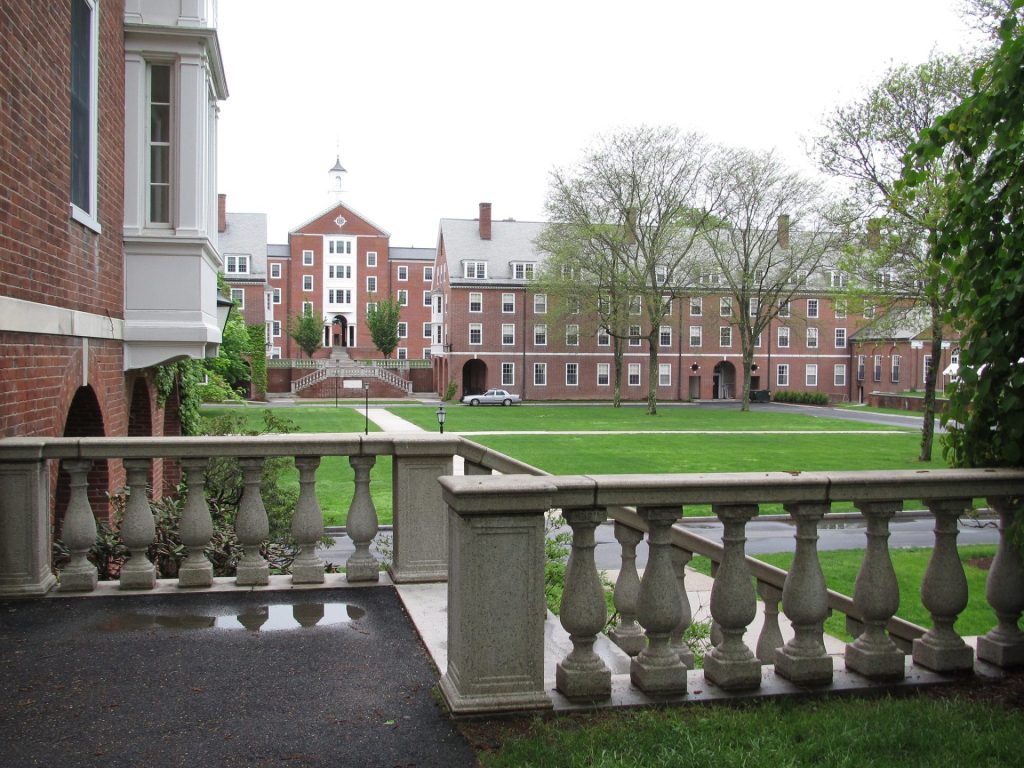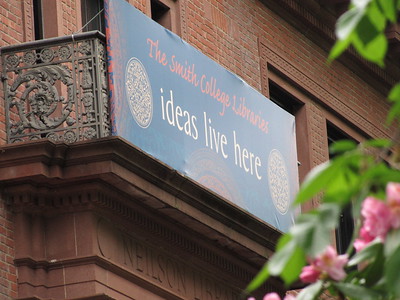
The 147-acre campus of Smith College features buildings that range in architectural styles from late 18th century to modern. From the outside, it looks like a medieval fortress, but Smith has done a great job of keeping facilities up to date. Smith College was founded in 1871 by Sophia Smith with the hope that students would have a focus on evangelical Christian faith. Today, the climate is much more liberal. In fact, Smith is known to be one of the most left-leaning of the nation’s top women’s colleges.
Here are a few quick facts about Smith:
Acceptance: 37%
Freshman retention: 95%
Freshmen out of state: 72%
Most popular majors: psychology, computer science, government, biological sciences, engineering, English
4-year Graduation rate: 85%; 6-year: 91%
Student Community Diversity: 6% Black, 14% Latino, 12% International
Housing: Smith’s housing system consists of 40 houses (not dorms) that accommodate anywhere from 12 to 100 students. Each house has its own traditions. Students describe the houses as less of a sorority atmosphere and more of that of an extended family. There is no separation between graduating classes within the houses; seniors share living space with freshmen, sophomores and juniors.
There are several dining locations on campus, each open at specific times for breakfast, lunch, and dinner on the weekdays and for brunch and dinner on the weekends. Campus food gets good reviews from the students.
Academics: Aside from the requirement to take at least one writing course, students at Smith will find they have an unusual amount of freedom to plan their course of study. However, Smith does require that half of a student’s credits come from outside of her major. First year students can take small seminars in topics such as Rebellious Women. The academic environment is described as “very intense and very difficult” but also “not too competitive.” Students at Smith are more interested in growing together rather than competing with each other.
Smith College is part of the Five College Consortium which means students can also register for classes at Amherst, Hampshire, Mount Holyoke and UMass Amherst. All courses at Smith are taught by professors who are hailed for being supportive and accessible to students. Students looking for small class sizes will be pleased to know that 69% of classes have fewer than 20 students.
There is no shortage of enrichment opportunities at Smith. Freshman and sophomore students looking to get involved in research will find paid internships through the STRIDE program. Nearly half of juniors participate in the study abroad programs in a number of countries for at least one semester. Smith also funds Praxis where students can participate in at least one semester summer internship. The Picker Engineering Program is the nation’s first women-only accredited engineering program, and those who complete it are highly sought after by graduate programs at various universities and also by employers. Many who have completed the program have received fellowships from the National Science Foundation.
Similar colleges to consider: Barnard College, Brown University, Bryn Mawr College, Scripps College
Social: While there is not a huge social scene on campus, student organizations do organize events such as movie nights and sundae parties, and each house hosts an average of two parties each semester. One of Smith’s annual traditions is Mountain Day in the fall where the president cancels class for the day and students spend it hiking and bonding.
Just outside of campus is Northampton (aka NoHo) – a town of 30,000 people known for its free-spirited, bohemian culture. Students will find plenty of places to enjoy music and dance, as well as a bowling alley and many great restaurants. For students wanting to venture further off campus, Boston and New York City are popular road trip destinations (2 hours and 3 hours away, respectively).
Smith was the first women’s college to join NCAA, and the Pioneers compete in Division III athletics. The strongest teams include crew, basketball and soccer, and the field hockey team recently won the New England Women’s and Men’s Athletic Conference title.
Financial: Smith offers both need-based and non-need based merit aid. 100% of need is met at Smith. Although the tuition and fees are $72,700, the average financial aid package is $47,500. 73% of students receive some type of financial aid.




